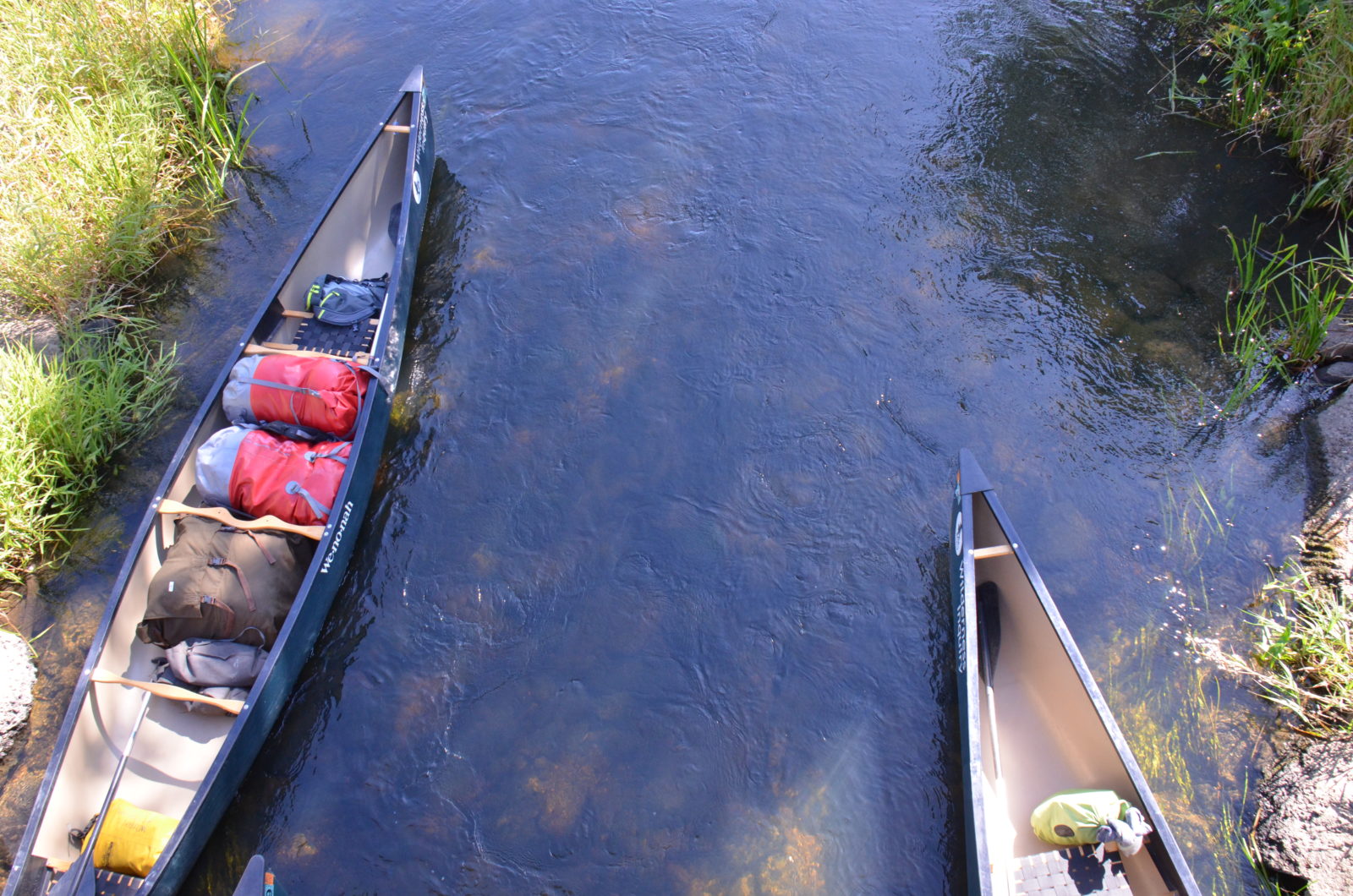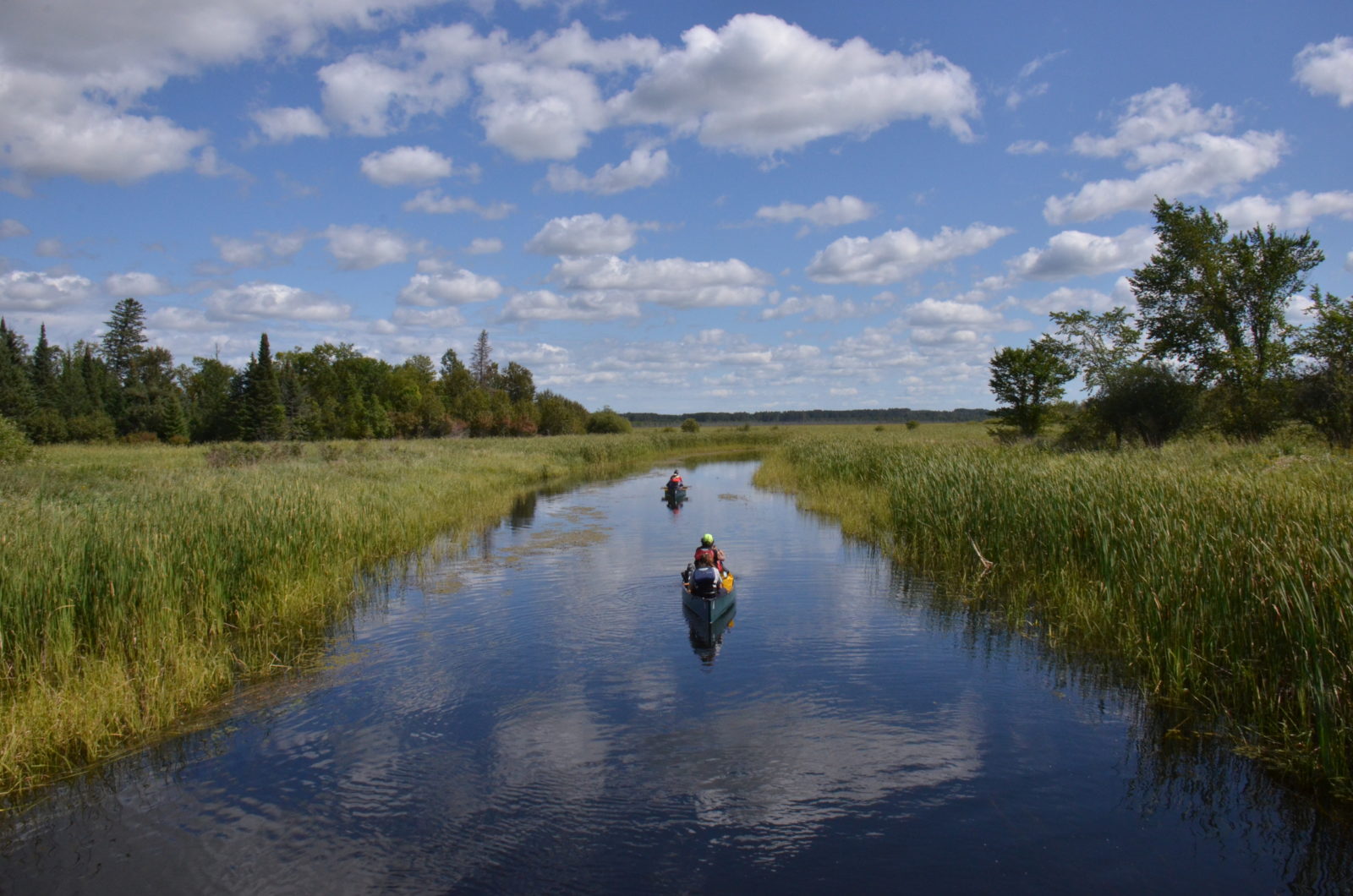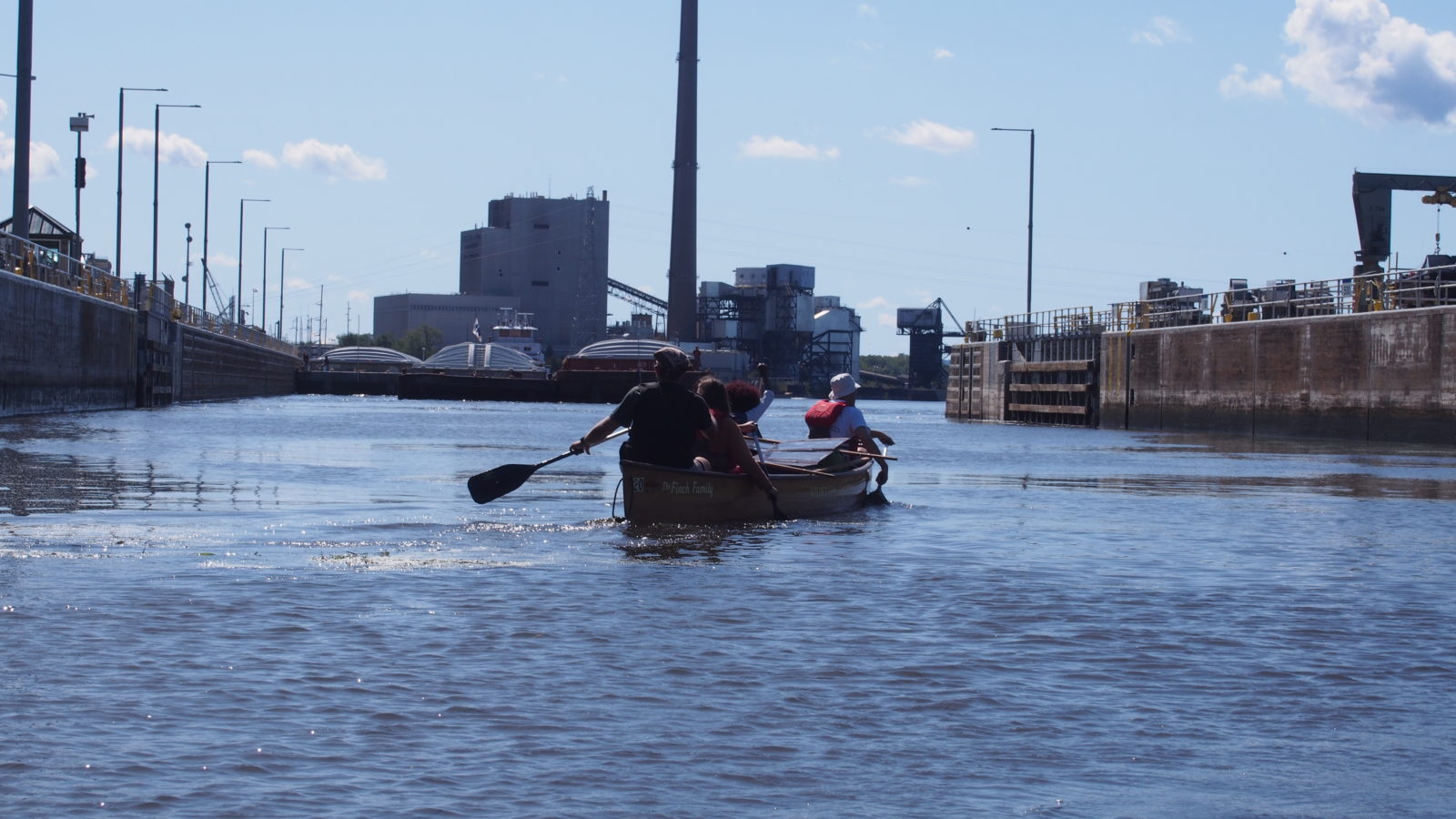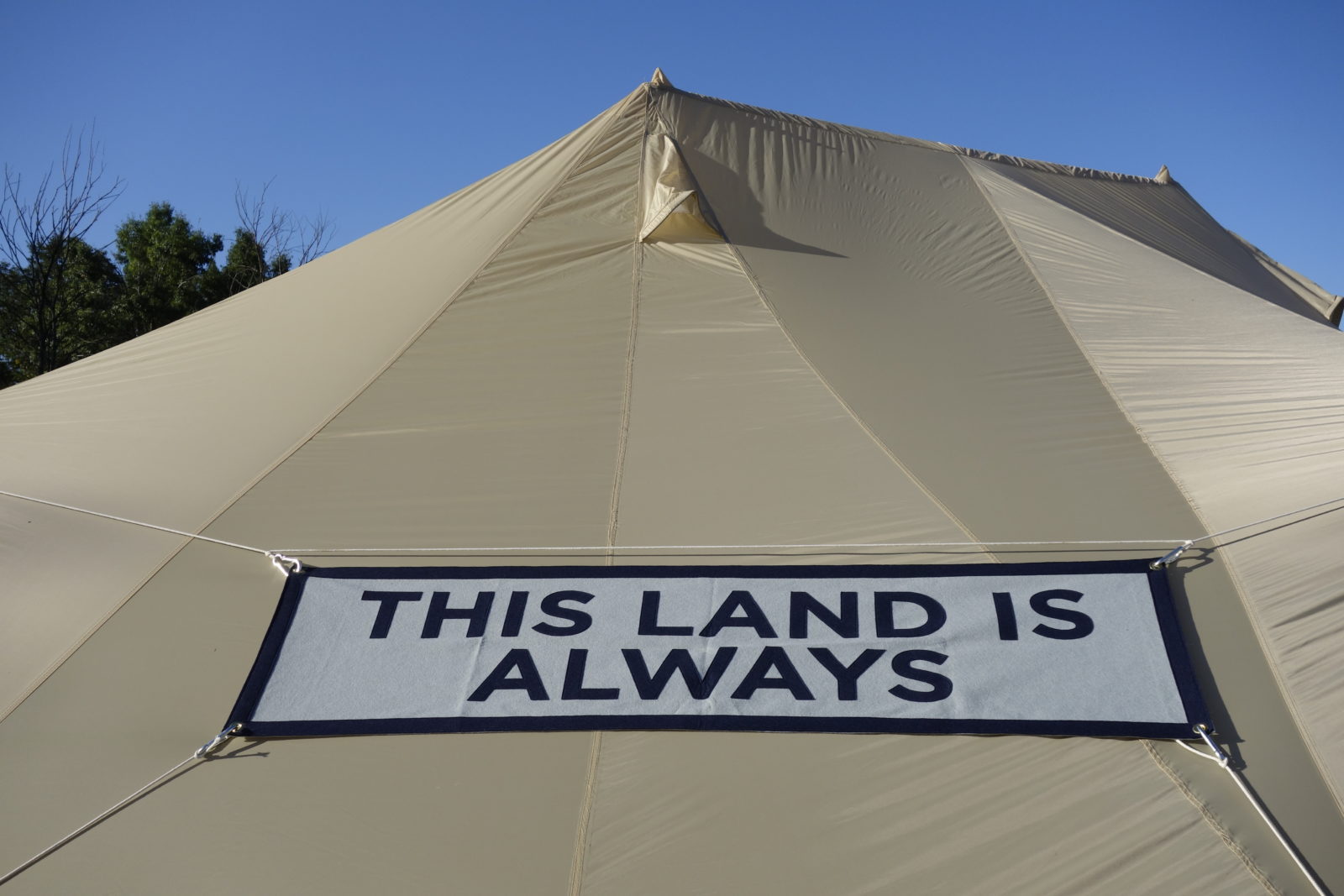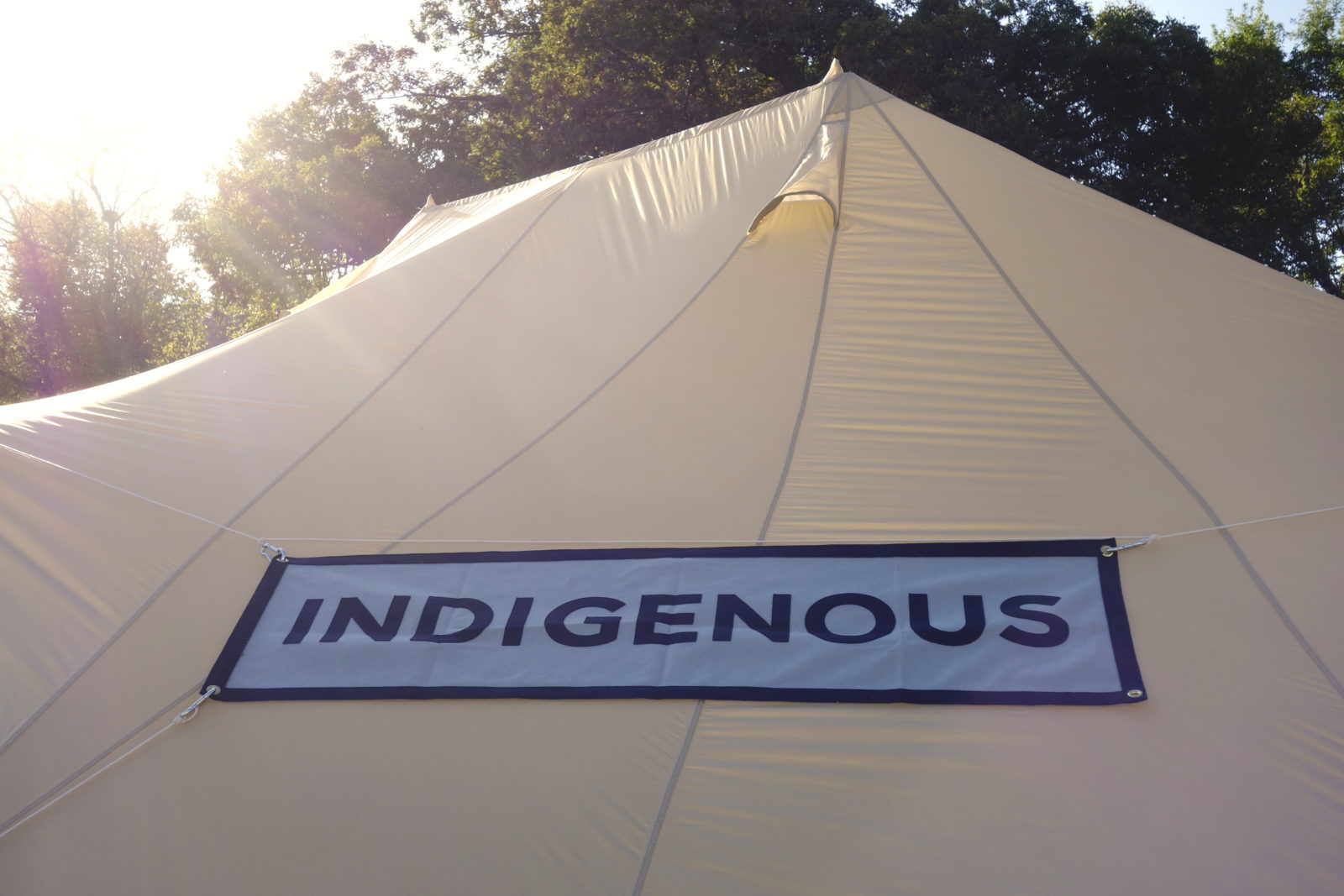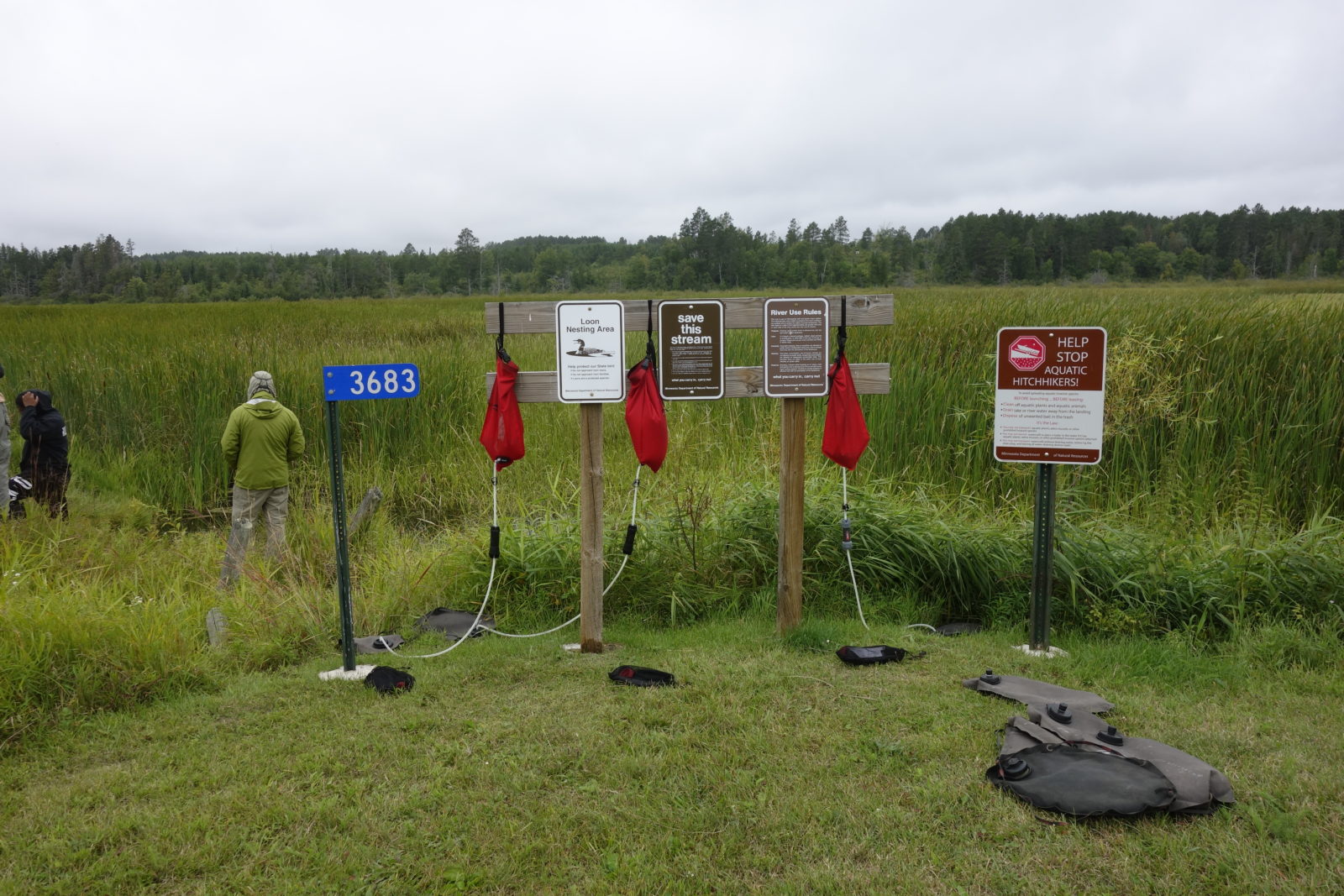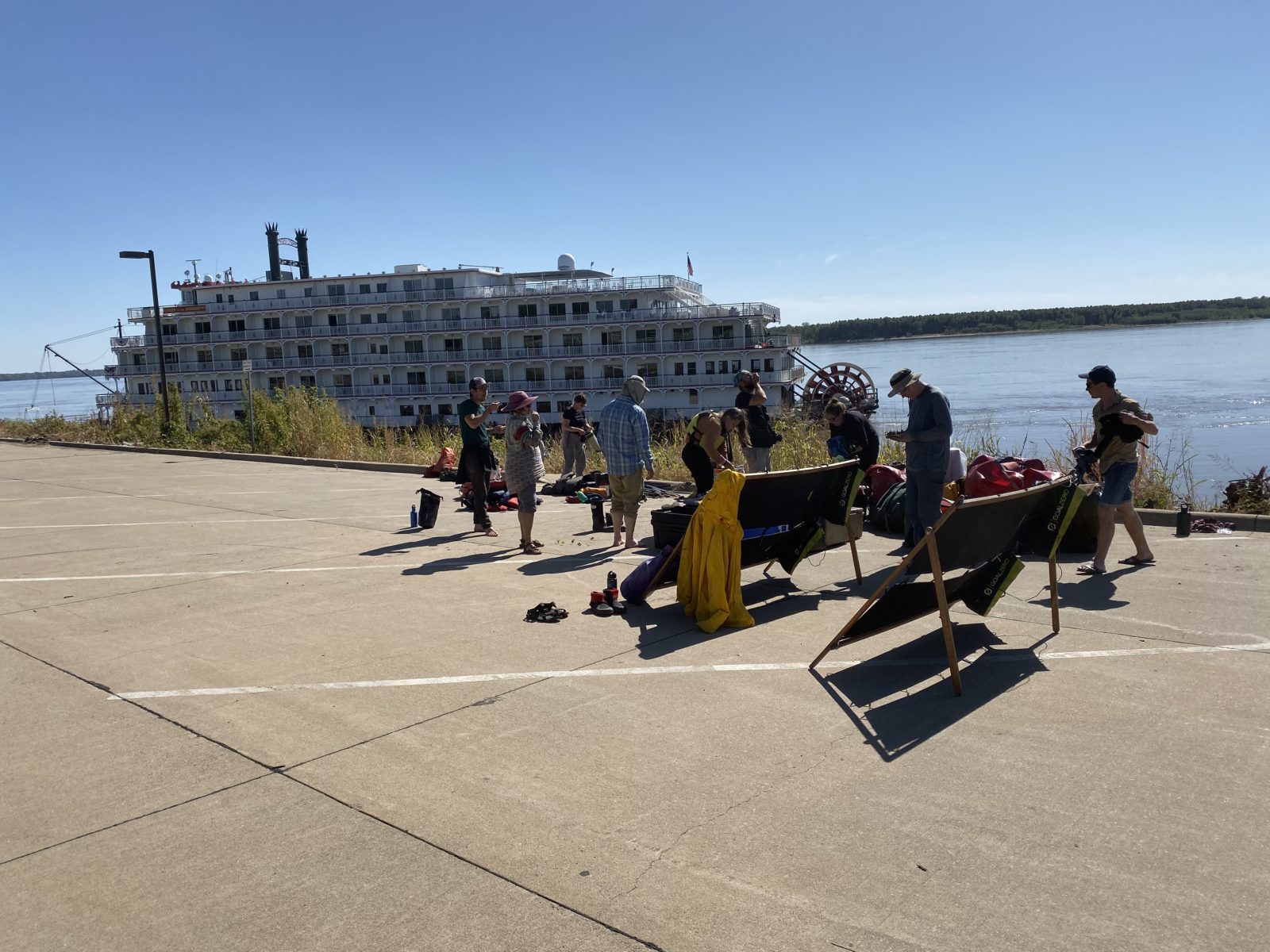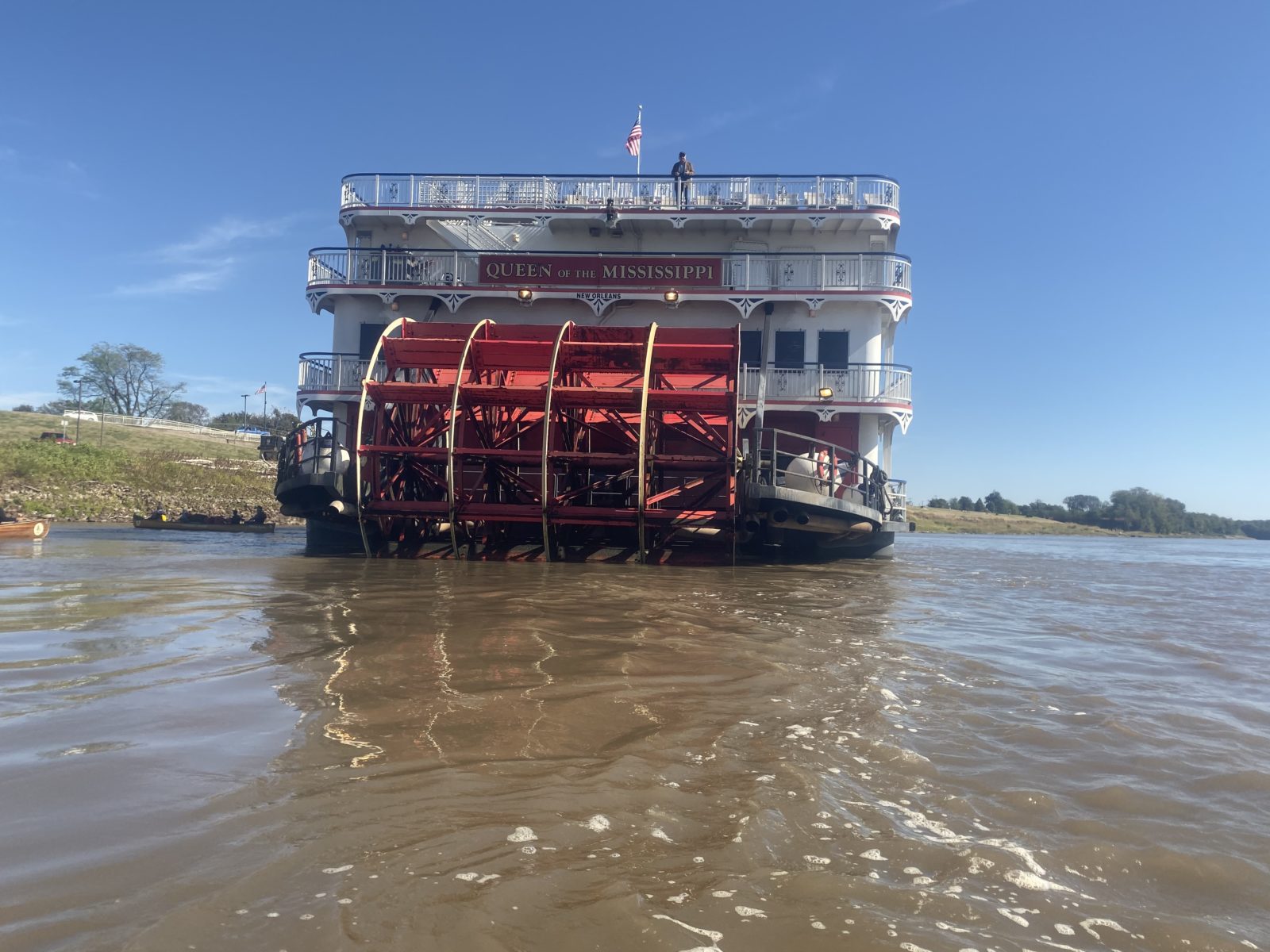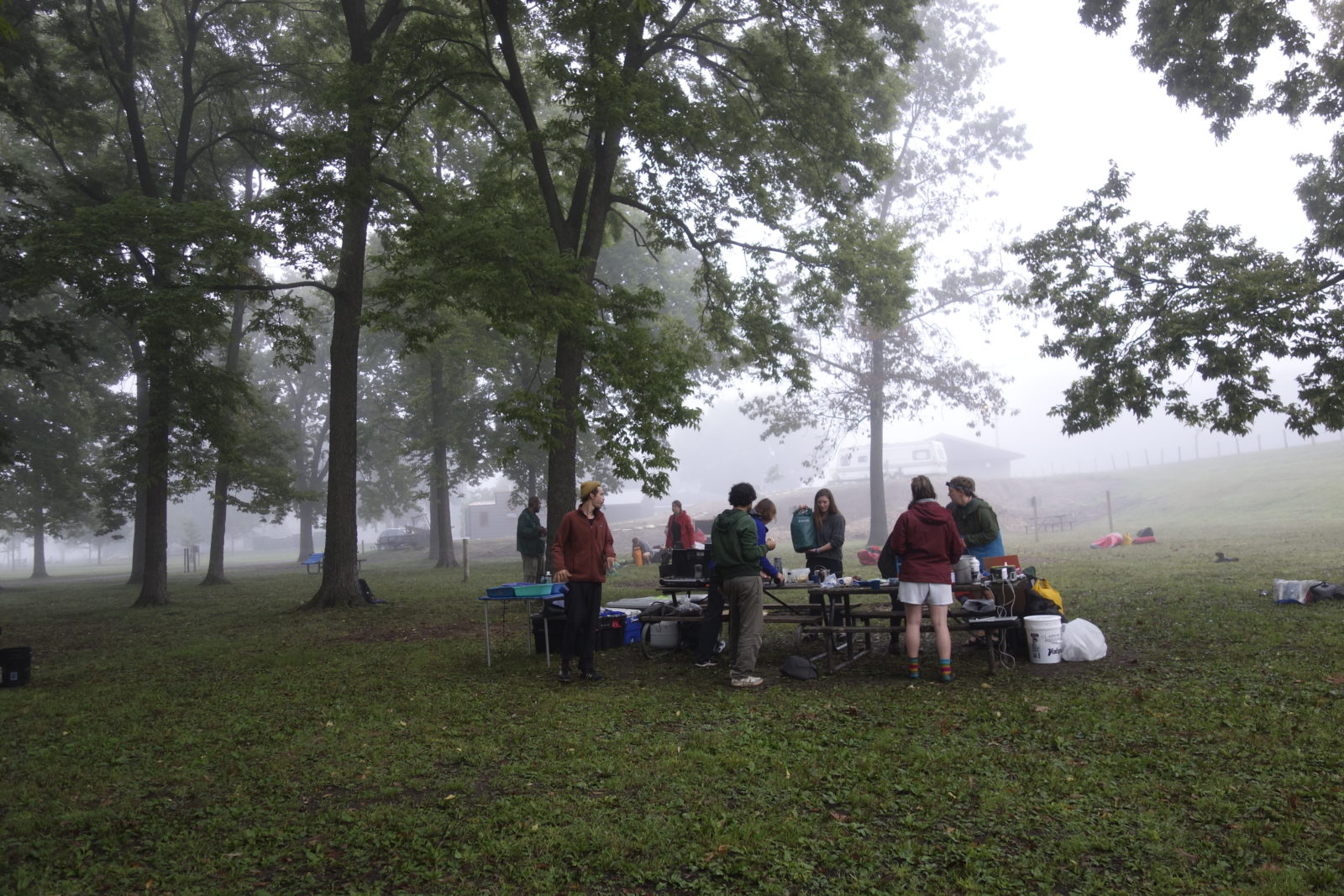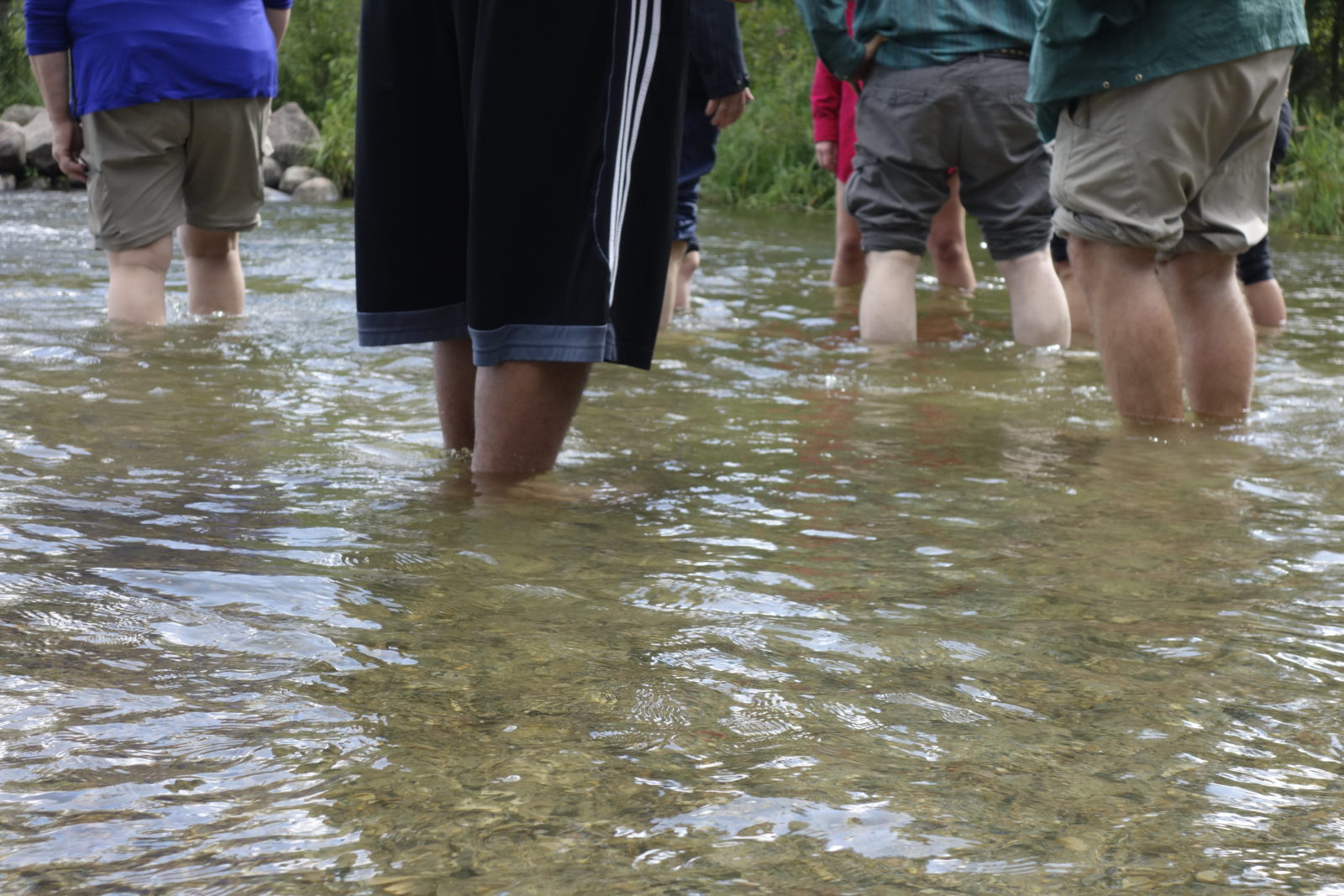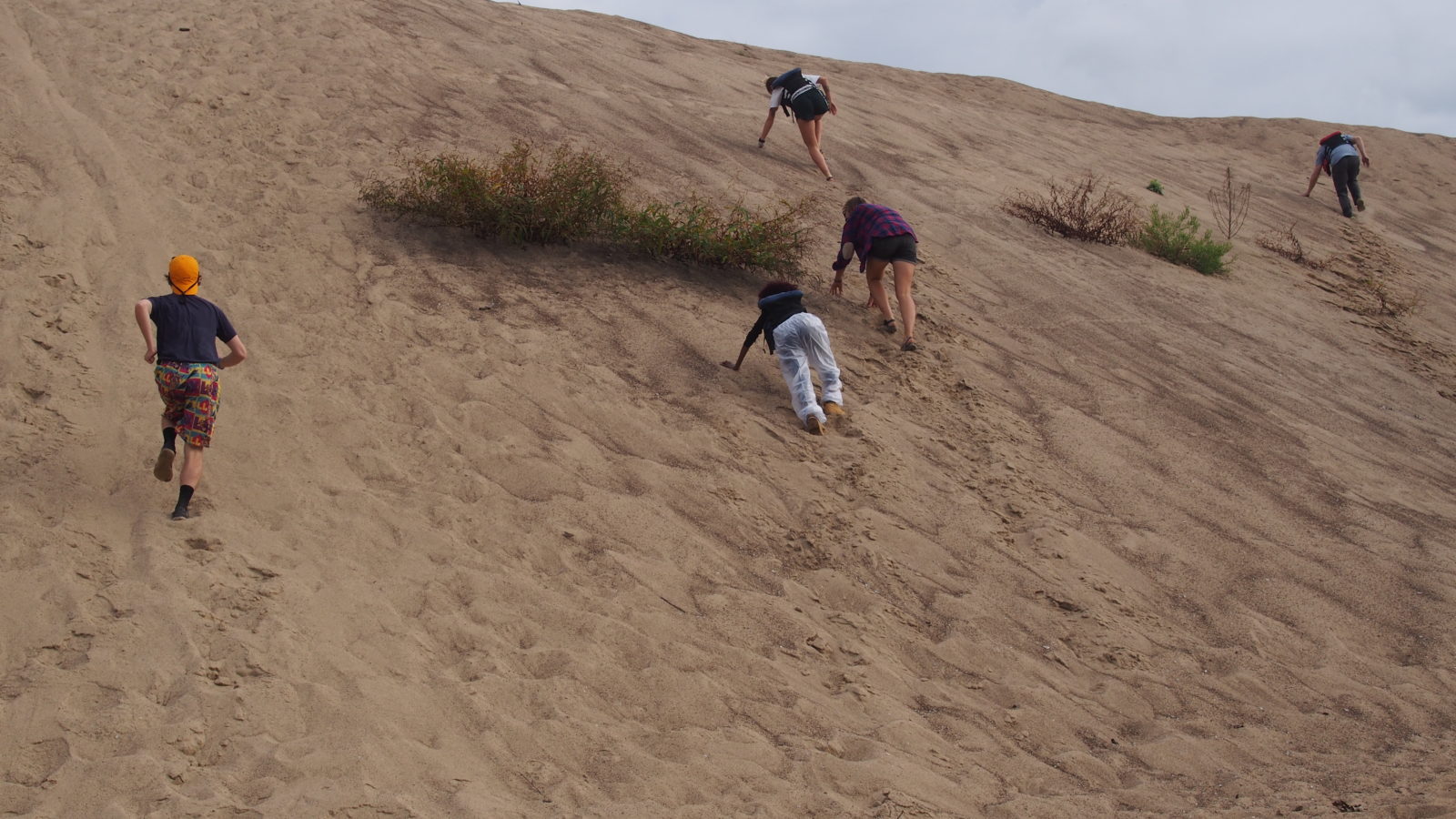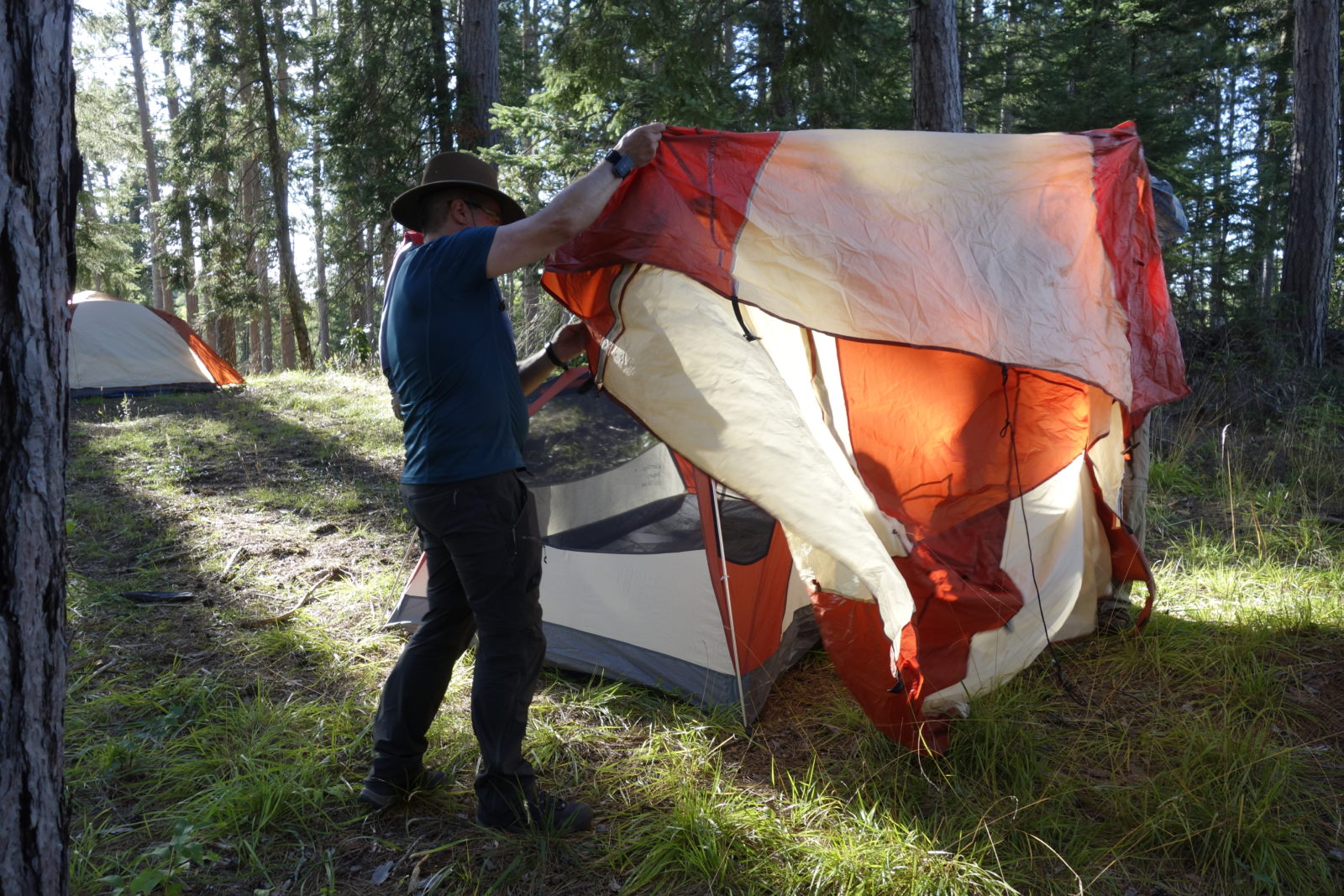On Translation and Agency on an Anastomosed River
The language of Anthropocene discourse is often unsuitable for the work urgently needed in the public sphere to change habits and policy in order to counter the impact of human activities on the Earth system. Political scientist and environmental educator Joe Underhill wrangles with this dilemma, leading research students along the Mississippi River as part of a yearly, off-campus study program—from just south of the river’s source in Minnesota, through the American heartland, and into the Deep South. Encountering the marginalized and divided communities along its shorelines acutely affected by the environmental injustices of the Anthropocene, Underhill argues that we must learn to listen deeply. In doing so, we might better understand each other and move closer towards a position of empowerment together in our era of environmental crises, both local and planetary.
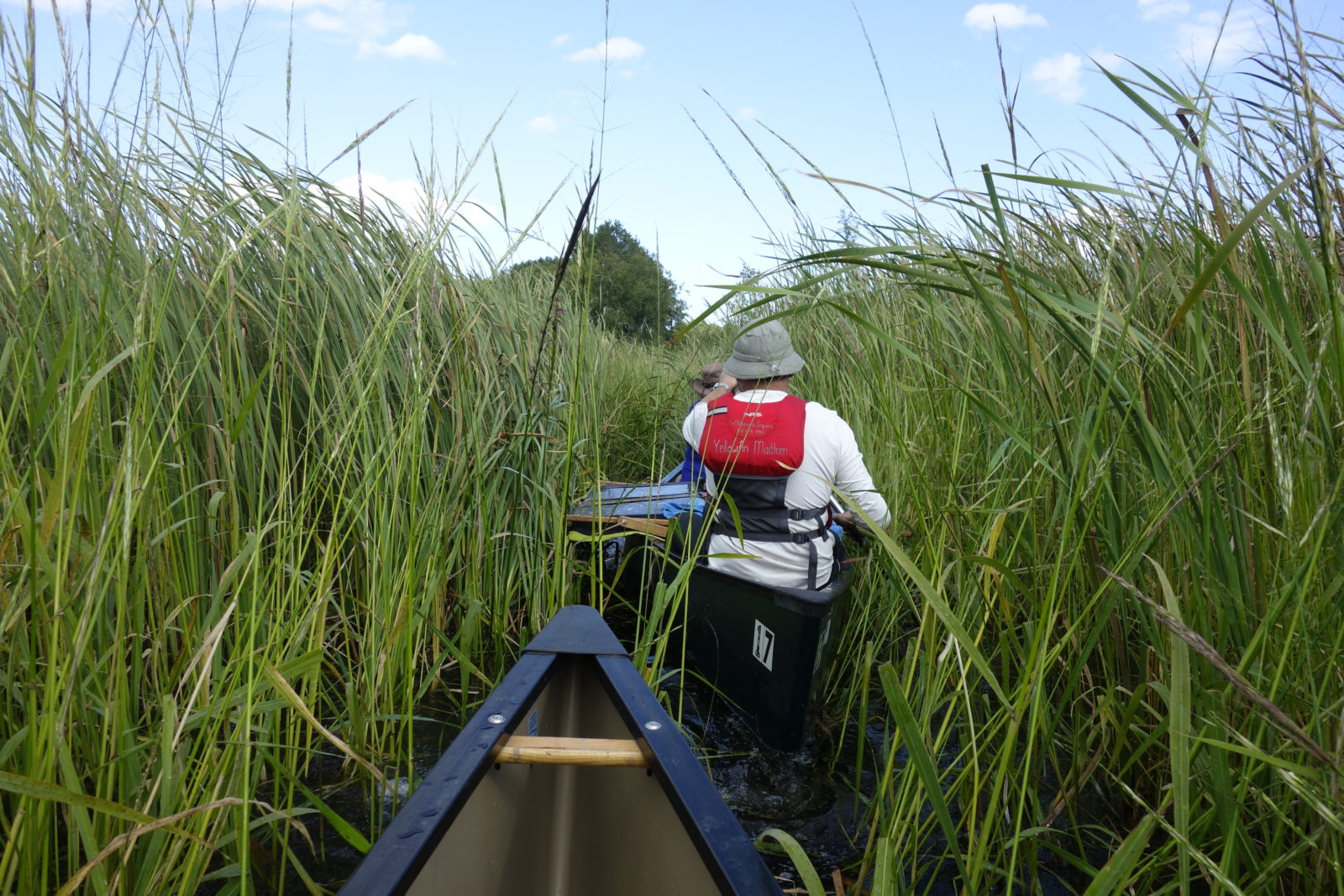
Urgency and Agency
The mounting, layered, mutually reinforcing crises and strains—pandemic, economic disruptions, wildfires, police violence, tropical storms, the ongoing destruction of the Sixth Extinction, political dysfunction, the storming of the US Capitol—all point to the need for transformations in our socioeconomic systems and their attendant curricula.1 The trend lines of the Great Acceleration show no sign of bending; the gap between rich and poor remains untenably large; Black and brown bodies continue to bear the brunt of racist brutality and settler colonialism. Around the globe there is resurgent nationalism and xenophobia, and in many capitals, a striking lack of government commitment—and even active opposition—to addressing these problems. During the 2020 US presidential election, large segments of the American populace seemed to have become unmoored from reality, caught up in vortex of wishful thinking about, among other things, a “God Emperor” who would restore a past of patriarchal white supremacy.2
These crises point to the need to examine long-held binaries and divisions. The insights of traditional ecological knowledge hold that no meaningful distinction exists between culture and nature. In many Indigenous cosmologies, the two are thoroughly intertwined—human communities are part and parcel of the natural world, and the human animal is as much a part of the natural world as any other creature.3 Similarly, the Anthropocene has thoroughly blurred the distinction between nature and culture, challenging traditional disciplinary lines and the narrow silos of the academy. The planetary “slow crises” that all humanity—to varying degrees—is now experiencing likewise create the need to combine contemplation with action. Purely academic work feels increasingly like a luxury humanity cannot afford, at least not if it is not also accompanied by political action. There are many ways to respond to the challenges of the current era, and there will always be a vital need for the theory and art possible within the confines of the academy. Those mobilized to respond to these crises will need rigorous science to better understand the nature of these so-called wicked problems and come up with the most effective technical solutions. But the abstract and complicated jargon that is the academy’s stock-in-trade have limited use if isolated from the public sphere.4 Given the need for wide public engagement, those of us working on these issues within higher education must find ways to connect these imaginaries and deeper understandings of current realities into the language and realities of a wider array of people. As these social and ecological problems increase, the political will to respond to them will eventually grow, as people come to have a harder and harder time ignoring or denying them. Already we can see signs of a sea change in public attitudes toward things like electric vehicles. There is a rising sense of urgency and awareness from many corners and growing support for change, although short-term needs continue to take priority over longer-term structural changes. Those of us with the capacity for action will need to speed up this process up as much as possible, joining with the multitude of activists and politicians who are working to make such change happen. The sense of urgency of teenage activist Greta Thunberg is not misplaced.
The range of newfound powers manifest in the Anthropocene demonstrate humanity’s amazing technological prowess. The question remains as to whether or not we have the commensurate foresight and wisdom to manage these powers. Humanity collectively faces dilemmas not unlike the one articulated by Albert Einstein as we entered the nuclear age—that “the release of atomic power has changed everything except our way of thinking.” Do the citizenry within the dominant capitalist and extractivist systems have the resilience and political will to take on the political and ethical challenges posed by these new Promethean powers? Around the globe, responses have varied. Where I live and teach, in the Upper Mississippi River watershed, just a few miles from where George Floyd was murdered by police in May 2020, certainly much remains to be done. My response as a citizen-educator has been to bring students and researchers out onto the Mississippi, to travel its length, experience its beauty, visit the communities along its shores, and begin to listen to the stories of the people whom we meet. There are many dedicated, engaged citizens in communities along the banks of the river, but the political support for change still lags far behind the mounting need. This direct engagement in the political realm, as students, teachers, researchers, artists, entails exploration, not just of river topography but also of our collective agency to change the current economic and political trajectories—as daunting as that task may seem. Such action will require significant rethinking of how higher education teaches and produces knowledge. In particular, this article explores the political utility of the language used in academia, which is not well suited for the kind of work needed in the public sphere. Politically engaged academics need to think carefully about how to translate the arcane into the vernacular and to incorporate local knowledge back into academic prose.
I explore the possibility of these cross-cultural conversations in the context of an off-campus study program that attempts to move conversations about our planetary crises out of the classroom and into the field. The River Semester, started in 2015 and run by Augsburg University in Minneapolis, spends the entire fall term traveling, primarily by canoe, down the length of the Mississippi River. The journey goes from the relatively progressive state of Minnesota, through the American heartland, and into the Deep South, including areas in which there is wide continuing support for former president Donald Trump and the forms of climate-denying, patriarchal, and racist policies he has encouraged and espoused. This makes for some challenging and at times troubling encounters for the River Semester group, particularly for BIPOC students. But on this journey, as we head down the anastomosed Mississippi—this set of braided channels that wind through multivocal spaces—we meet fisherman, oil refinery workers, towboat captains, duck hunters, farmers, good ol’ boys, and unapologetic Trump voters, as well as socialist revolutionaries and Black Power organizers, Indigenous activists, ex-cons, pastors, Jehovah’s Witnesses, and suburban housewives.5 We meet with those who, for generations, have lived through the traumatic effects of slavery, segregation, and settler colonialism, as well the rural poor who feel left out of society, have a “fear of falling,”6 or somehow see themselves as “strangers in their own land.”7 The current American political context includes deep concerns about both justice and status on multiple fronts and for different reasons. Those who have suffered for centuries as part of settler colonialism and slavery are expressing mounting frustration, manifested in many forms of protest and calls for change. From those (predominantly white middle-class) people who are well-off enough but have an increasingly precarious position within the evolving socioeconomic system, there is fear of change and a desire to, in some way, “make American great again.” In these encounters in the field, how can we find spaces and ways for sitting and talking about the work we will all need to do in the days ahead to respond more effectively to things like climate change and global pandemics?
From the Academy to the Polis
To change the course of our current techno-economic trajectory, certain things need to happen in the political realm. To varying degrees and in different ways, significant changes are needed all around the globe. In the US, the required changes include the need for a few million people (particularly in states like Georgia, Florida, South Carolina, Kentucky, and Iowa) to more fully comprehend the magnitude of the current challenges, embrace uncomfortable new realities, change ways of life, and elect different officials. Not all social and environmental problems can be solved by policy at the national level—individual choices, business management practices, and a reinvigoration of civil society are all crucial. But, as the COVID-19 pandemic has made all the more clear, concerted action is needed at the level of national (and international) governing bodies.8 These political changes must happen in the context of the well-funded and the well-connected lobbying and knowledge-production machinery of the petrochemical and fossil fuel–related industries, which have trillions of dollars invested in the mechanisms that drive the Anthropocene and who do not want to leave these assets stranded.
The response in the polis consists of work toward a feasible, imaginable, more sustainable future that includes actions such as increasing the regulation and reducing the pollution of industries, lowering rates of environmentally caused cancers, making a shift toward more regenerative agriculture, responding to the opioid epidemic in both urban and rural communities, transitioning to a mostly renewable-energy economy, and dismantling legacies of settler colonialism and slavery. Political pragmatism requires that this not be a Quixotic quest for “better bread than is made of wheat.” In a less-than-ideal-but-highly-preferrable future, we will have to find a way to live, to keep fighting, to find joy and hope and beauty, even as we mourn the losses that have already happened and those that will continue, despite our best efforts to stop them. This kind of optimistic but sober realism is also part of agency in the Anthropocene.
This political work requires engaging with portions of the public who are generally not involved in much of the work done by the academy. As field researchers we must listen to those most directly affected by existing injustices and slow violence, and seek to better understand their dilemmas, pains, and powers. And these realities need to be brought back to those in the general population who are resistant to change but still open to conversation. These can be difficult conversations, but they are how we build community—by listening, learning from one another, changing our minds, and understanding each other’s lived experiences. We must enter into such conversations while being open to changing our own minds and understanding the validity of the views and experiences of those with whom we may disagree. And there are a wide range of opinions, misconceptions, and worldviews out there. To give but one striking example: public opinion surveys have found that 20 percent of American adults think the sun revolves around the earth.9 The 2020 US presidential election campaigns laid bare the susceptibility of many to unsubstantiated claims, especially if those claims reinforce existing fears, aspirations, and desires. At the time of the 2021 inauguration of President Joe Biden, over a third of those polled believed that Biden and Vice President Kamala Harris had not won the election, despite there being no factual basis for that claim. Although this is by no means a new phenomenon, today an alarmingly large number of people believe conspiracy theories such as those espoused by QAnon, view mainstream media as a pack of lies, and increasingly mistrust science, academia, and politicians in general. Certainly, skepticism is welcome and healthy. But the lack of evidence to back up so many current political beliefs is deeply troubling, pointing us again to the need to connect directly, person to person, and “get real.”
Listening
In Winona, Minnesota, students enrolled in the 2015 River Semester met with the owner of a low-budget campground on the banks of the river who was eager to share his life story with a group of college students and faculty. In the campground store, he revisited his past, recounted the origins of the campground, and opened up about some marital difficulties and the departure of his ex-wife. He had a palpable hunger to be heard, to have a chance to talk with young people and pass along a bit of his life story. One of the most striking things we experience on the river is exactly this hunger of people to tell their stories. Such was also the case with a family our group visited in Louisiana in 2019. The patriarch, a retired refinery worker, had gotten wind of our trip through a social media group connected to paddling on the Mississippi. He invited us to stop by when we were in the area. The family, we learned, liked having parties down on the batture (the land between the levees and the river’s edge) and graciously invited us to one when we visited. Due to the unusually high water, most of the batture was under water, and we were not able to have the full celebration they had planned. But there was still enough room for us to pitch our tents, and the family had set up some picnic tables, brought us pralines and cold cokes (and later on, beer), and joined us for conversation around the campfire. They like playing cards, drinking beer, riding ATVs, and generally spending time on the river. They were intrigued by our trip, by hosting some visiting “scholars” and professors (including some from overseas), and were curious about what we were studying. We were part of the steady stream of interesting things that flowed past their homes, gifts from the river. Although we did not talk politics, the bumper stickers on the trash can indicated that they voted for the conservative Louisiana Governor Bobby Jindal. Almost all the family works either for oil companies or the sugar plantations. They shared how they had observed an unusual number of floods and highwater events in recent years. And we learned that their family is highly afflicted with cancer and other medical problems. Despite all this, their spirits remain remarkably high, and their generosity was truly impressive. They wanted to learn more about what we were doing. At the end of our visit, I tried to explain the concept of the Anthropocene, saying simply that it was an understanding that the world was changing dramatically as the result of human activity. It meant that we were having more problems now, like the flooding they were experiencing at the moment. It wasn’t clear to me that this explanation really registered or changed anyone’s mind, but it was at least the beginning of a conversation.
When asked today, the American public continue to list their main concerns as the economy and jobs, as well as the COVID-19 pandemic.10 For a large swath of mainstream America, racial justice, environmental issues, and climate change are still far down the list of priorities, making conversations about the Anthropocene difficult. As former president Barack Obama has noted, based on his work in the field as an organizer and politician, most of the people he encounters in the American heartland care most about basic economic hardships, lack of access to health care, basic safety, the lack of affordable education, and the ability to “retire with dignity and respect.” He writes, “Most people, wherever they’re from, whatever they look like, are looking for the same thing. They’re not trying to get filthy rich. They don’t expect someone else to do what they can do for themselves. But they do expect that if they’re willing to work, they should be able to find a job that supports a family.”11 As described by political organizers such as Saul Alinsky, Marshall Ganz, and Harry Boyte,12 the work of shifting priorities requires first understanding the needs, lives, and stories of those with whom you are working. These conversations must be entered into humbly, with an open mind, and with more listening than talking. They involve building relationships over time, setting aside preconceived notions, and entering these encounters with an understanding that most people are kind and don’t want to see the world go up in flames.
In contrast to the types of vitriolic and destructive conversations that happen online (if these can even be described as “conversations”), on the River Semester we have found that dialogue out in the field and meeting people face-to-face does wonders to humanize those who we would otherwise know only as shallow caricatures. When operating with even just a modicum of basic friendliness, students on the program find the world to be much more hospitable and welcoming than they expected. The River Semester experience facilitates connection with strangers in part because the group makes itself vulnerable and open to the world. In contrast to the experience of traveling by bus or train, or being part of an organized tour group, embodied, “exposed” travel makes it possible to connect with a whole set of communities that we otherwise would have no access to. People of all sorts—store owners, church leaders, mayors, hunters, retired teachers—wanted to help us and were intrigued by our stories. This sense of hospitality is facilitated by a river culture that is full of stories, yarns, and chance encounters.
How do these conversations along the Mississippi River square with the language and productive activity of the academy? Most academics are caught in the trap of using a complex and obscure tongue. Some of this arcane language is necessary to attempt to bring as much of our collective cognitive abilities as possible to bear on understanding the complexities of a vast and ultimately unknowable universe. But some of it is also used to impress or to cloak otherwise unremarkable ideas in a shroud of technical jargon. The pressure to publish in increasingly crowded fields and the proliferation of ever more obscure and specialized fields of knowledge push us further into the morass. References to the Anthropocene (let alone notions such as the Chthulucene, solastalgia, interscalar vehicles, and the technosphere) are, in large part, a product of these dynamics and drivers. These are provocative, intriguing, interesting ideas, at least to those steeped in certain fields. But this way of understanding the world alone will not get us to where humanity needs to go. The community of engaged scholars needs these concepts and frames, but public scholars also need to translate them into language and political tactics that can actually change the world. The paths from John Locke’s Second Treatise to the 1789 US Constitutional Convention, or from Karl Marx’s Grundrisse to the October Revolution in Russia, are long and have uncertain, sometimes tragic, outcomes. To have even a chance of success in addressing our planetary crises, the community of environmental justice advocates needs to develop a vocabulary, attentiveness, and set of skills different from those imbued in the pages of academic journals or shared on the walls of most art galleries. Caught in this esoteric echo chamber, writing to a very select audience, and mostly preaching to the choir, scholars and artists cannot afford to remain cloistered in the confines of the academy. Students of the Anthropocene interested in agency must, to some degree, take on the work of journalists and become environmental translators as well.
Translating
In the Anthropocene, a crucial role is to be played by translators capable of moving between the world of academia and the worlds of places like East St. Louis, Illinois, and Paulina, Louisiana, and engaging in community conversations there. A first step is to make sure the folks such translators are meeting with are open to conversation. This can take a little trial and error. For instance, in 2015, when the River Semester group went to a bar in the aptly named town of Chauvin, Louisiana, we were accosted by a highly inebriated man, his arm in a cast as the result of recent scuffle. He bragged that he would kill any person of color who walked through the door, his language involving the worst kind of racial epithets. He was not someone we would sit down with and try to discuss racial justice. And it’s not clear how far we might get with that 20 percent of adults who think the sun revolves around the earth, or with those still convinced that QAnon is a true prophet. But in the encounters and conversations that River Semester participants have had along the way, we have found that most people are open, curious, and friendly (even if discussion of overtly political topics is generally avoided).
The question then becomes how to go from one language to another—from a technical and complex set of ideas to a vocabulary that is accessible, without losing too much in the translation. How does the academy begin to think about translating insights and concepts from projects such as the Anthropocene Curriculum into a vernacular legible to the “American swing voter” or similarly situated citizens in other regions of the world? How, for instance, might our river hosts on the batture in Louisiana understand and acknowledge the colonial and slave history of the land on which they live?13 Might some of those family members support changes to oil subsidies, even when a large portion of the family income comes from those companies? Might they see the value of going to work for a solar-power company, converting their sugar farming to regenerative agriculture, or supporting greater use of the floodplain for adaptation to the increasing severity and frequency of flooding on the Lower Mississippi? It seems a stretch, but not out of the question.
After listening to the stories of BIPOC voices in St. Louis,14 or of the members of Cooperation Jackson in Mississippi,15 or of the residents of Cancer Alley between Baton Rouge and New Orleans, or of the people who live in Isle de Jean Charles in Louisiana, how do we take these ideas and the sense of urgency about the planetary dynamics of the Anthropocene and translate them into conversations with the friendly people running the souvenir shop in Cape Girardeau, Missouri? How can students who are learning to listen to and speak for the river16 translate those “fluvial languages and sensibilities” into a patois that makes sense to duck hunters near Hastings, Minnesota? How do the local residents there listen to the river? The duck hunters certainly spend a great deal of time sitting quietly in their jon boats, waiting for their prey. Studies of Anthropocene hydrology and geomorphology tell us that, as we come to a fuller understanding of flooding as the climate changes, we will need to learn to live with the river, giving it some room to “breathe.”17 What would the conversation on these topics look like with the Missouri soybean farmer we encountered? The land he works is protected from Mississippi flood crests by the massive levees constructed by the US Army Corps of Engineers. When we met him on the levee road, looking for his lost dog, he was distraught, the lost dog seemingly symptomatic of larger problems. It would have taken some time to build a relationship with him, and it may well be the case that he would not have had the openness and wherewithal to give up soybean farming on the floodplain just because of increased flood risks to communities downstream. We will need to find ways in future to continue these sorts of conversation, perhaps including some of those downstream residents, and see where that leads.
In her discussion of data flows, sociologist of science Tahani Nadim writes that the “datafication of nature refers to a wide-ranging project that seeks to translate biotic and abiotic life into governable measures and values. It involves diverse practices, from digitizing natural-history specimens, to sequencing and barcoding environmental samples, to modeling vegetation types using remote sensing.” Can we take this intriguing and important idea and communicate it to an unemployed factory worker or third-generation white male farmer in Iowa? Many conventional farmers, planting GMO seed, use GPS data to do precision farming. How does this relate to their human experience of living on and working with the land? In Nadim’s account, datafication is problematic because of its numerical reductionism. It facilitates commodification and mass production and consumption, enables scientific and technocratic control, and elides complex interrelationships and lived realities. Is this an idea to which a farmer, who is still in direct and intimate connection with the land on which they work, could relate? Farmers express concern about things like the high cost of all the fertilizer and pesticides and GMO seeds used in industrial agriculture. It is hard for them to make a living, and many of their children no longer want to farm. There are also the health effects and potential links to air and water pollution of these chemicals. And the farmers have direct experience of the increased severity of storms. Such lived experiences can become an avenue for conversations about the Anthropocene and ideas like datafication.18
The Anthropocene discourse is by and large foreign to the vast majority of people who live and work along the Mississippi River. Our challenge as academics is taking this arcane and abstract concept and making it meaningful to someone who might be open to voting for politicians who will do things like reduce fossil fuel subsidies or engage in serious discussion of racial justice and police reform. There are models and precedents for this work.19 The grassroots campaigns for civil rights in the 1960s engaged a wide range of stakeholders in helping to address the most blatant forms of segregation. More recently, the campaigns organized in support of gay rights in the US helped to dramatically increase the level of acceptance of same-sex marriage.20 Today, a number of organizations are finding ways to engage in so-called Red-Blue dialogues.21 A key shared element of the work of these movements is that they involve meeting person to person to make the issues relatable and connected to the day-to-day lives of swing voters or cynical and disenfranchised citizens.
The River Semester begins from a stance of humility in relation to the mystery and wisdom of the river itself. During our journey downstream, the Mississippi is our teacher and we are all its students. As with our understanding of the river, we must begin these conversations along the river’s banks by listening to the life stories, worries, dreams, and questions of our fellow citizens. This work of translation and empowerment also entails that we tell our own stories and “public narratives.”22
It requires asking questions such as: What are you experiencing and feeling now in terms of your life along the Mississippi? What stresses are you experiencing? What gives you joy? What do you like about your life? What is your relationship to the river or to water where you live? Do you notice things changing? Are any of these changes troubling? What is the incidence of disease and addiction in your community? What are you hoping for in your life? Do you feel like you have ways to achieve those goals? These may be difficult, and sometimes fruitless, conversations. But there is little choice in the matter. Climate justice advocates and global citizens have to forge ahead under these far from ideal conditions, and do what we can to enter into conversation with the people around us who, with some better understanding of the wider world, may come to see more clearly that we are not on a sustainable path. All long journeys down the river begin with more questions than answers; but we know we need to head toward the ocean, feeling our way along. So our crew on this perilous journey must seek, with all the urgency of these times, to rebuild our societies in ways that respond more constructively to the new realities of the Anthropocene.
